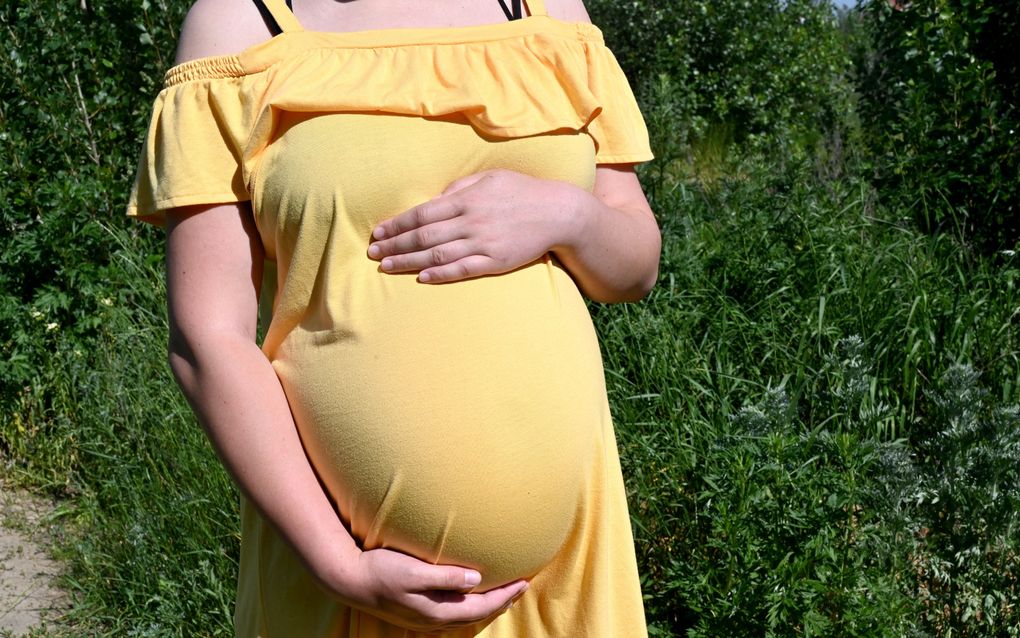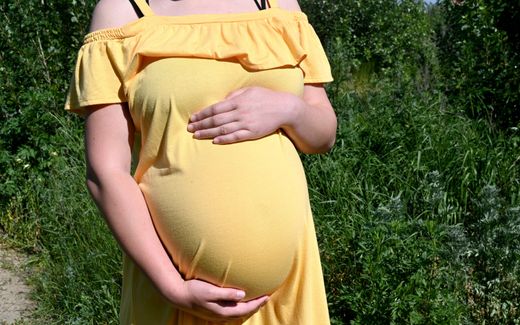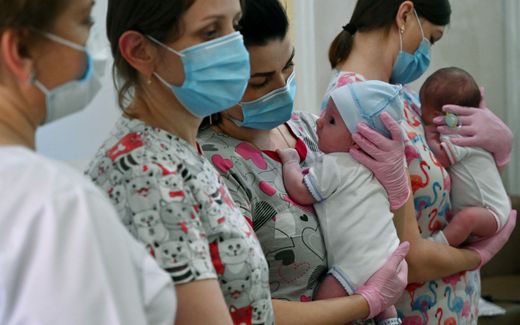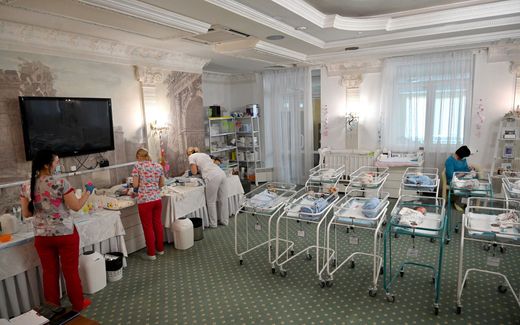Ukrainian surrogacy business is booming despite the war

Photo AFP, Sergei Supinsky
Eastern Europe
The war in Ukraine has not stopped the surrogacy industry. Children are being born, and since April, some clinics have restarted the search for mothers for rent.
For those arriving in the Ukrainian capital of Kyiv by train, one of the first images of the city is that of men waiting on the platforms with the sign "Biotexcom" displayed. These men wait for foreign couples, braving the war conditions to pick up their babies.
Biotexcom is the largest surrogacy clinic in Ukraine and Europe. Since the war broke out, the women in the surrogacy facility gave birth to 19 babies destined for Italian couples alone. This reports the Christian Italian news website Avvenire.
The war did not stop the demand for babies either. Avvinere visited the Biotexcom facility in Kyiv. According to them, on day 86 of the war, there was not a single free chair in the waiting room. From April 10th onward, Biotexcom has restarted the search for surrogate mothers. "We have a lot of parents abroad who want to join the program. Fifteen Italian families have already put themselves on the list. And we received requests from China, Romania, Moldova, Germany, Spain, Great Britain, France, Poland and Turkey. We hope to be able to fulfil them as soon as possible. It depends on how quickly we find the candidate surrogacy mothers", says an employee to Avvenire. According to him, the search goes well. "Thirty showed up the other day."
With the start of the Russian invasion, one floor was transformed into a sort of bunker to hide from bombs and shelling. Similar shelters were also set up in the apartments where, shortly before and shortly after the birth, the foreign couples - married, heterosexual and with a medical certificate certifying the impossibility of procreating - live while completing the procedures to take the baby home.
Paramilitary
The war, however, does not make work easier for Biotexcom. At the beginning of March, the clinic uploaded a video on YouTube. The video, entitled "Work of Biotexcom in the conditions of war", shows a car with military personnel driving at high speed through a city while passing several roadblocks. The armed men are members of the Karpatska Sich Volunteer Battalion, thought to have been named after a similar-named paramilitary organisation from the late 1930s. According to the Swiss daily Neue Zürcher Zeitung, the men are hired by Biotexcom to ensure the babies' safety.
When the car arrives at its destination, the armed men enter a hospital, carrying several duffle bags. Not long after, they reappear. It is only when the camera zooms in closer to one of the bags that it becomes clear what valuable cargo is being transported here: Inside, wrapped up tightly and sleeping peacefully, lies a newborn baby.
Again, the car is seen driving at high speeds through the city. When they arrive at their destination, the camera follows the group of people into an air-raid shelter. There, a large room full of beds and cradles becomes visible. And babies, lots of babies. Between them, women are trying to soothe the crying babies.
Opportunities
Outside of Ukraine, there are hardly any alternatives worldwide for surrogacy. In many countries, this practice is completely forbidden; in others, it is only permitted with great restrictions. In particular, commercial surrogacy, where the women are paid for the pregnancy, is only possible in a few states. And if countries do allow the practice, then often not for foreigners.
That was different until not too long ago. Especially in the years 2012 to 2015, many governments tightened their legislation. As the NZZ writes, the case of "Baby Gammy" in Thailand was a reason for the Thai government to tighten rules. The baby was born with trisomy 21 and was therefore left by his Australian parents with his surrogate mother.
Last week, the Russian Duma approved a bill banning foreigners from using surrogacy services. The bill says that only a citizen of Russia could get a surrogate mother. The ban will not apply to marriages between Russian and foreign citizens "to prevent discrimination against the rights of a Russian citizen for reasons of the spouse's citizenship". This reports the Russian news agency Interfax.
While other countries are restricting surrogacy, the business is booming in Ukraine. The country can look back on many years of experience. As early as 1991, the first surrogate birth in the post-Soviet region occurred here. The procedure was officially legalised and recognised as a method of fertility treatment in 2002.
It is uncertain how many children are born to a surrogate mother in Ukraine each year. Although there are official statistics, these are not very meaningful because the clinics are not obliged to pass on information. Ukrainian lawyer Sergei Antonov, president of an organisation representing surrogacy agencies, puts the number of births at 2,000 to 2,500 — half of them through Biotexcom.
Moral evil
Ukrainian Christians do not support the surrogacy industry in their country. In 2020, amidst the pandemic in which a lot of couples were unable to get their child due to travel restrictions, a union of Pentecostal churches denounced the "profitable business that turns a mother into an exploited object and her child into a living commodity". Ukrainian Catholic prelates condemned the practice as a moral evil.
Related Articles






